Lock down blues? Cuddle yarn or fibre !
It’s all happening..well, rather …all is NOT happening.. it should have been a brilliant day at the Bendigo show , but due to COVID yet again, we are facing a lock down nr 5 in Victoria ! Frustrating as it is, people who know me, when disaster hits, I turn the music up and ..fight my way through it , singing loudly . It’s my way to deal with , you know, bad things. The comedian comes out in me, which pisses some off I am sure. It’s not that I do not see the pain and suffering, I do! I am hurting with you ! It is just my way if dealing with negative shit: It’s like when I went through cancer I watches loads of satire, comedy, laughed at my own misery. I know there is absolutely no value whatsoever commiserating at our misfortune: it just makes everything feel worse. So what I do, is show my compassion to those doing it tough, help in any way I can and to counteract what all those negative things do to me personally , is: to burst out in song at the loudest my lungs can take (Paul wears head phones..lol) and get on with it. It’s not everybody’s cup of tea, but it’s my way of dealing with it. Good thing is, I dyed up a and spun up a storm! So good news for everybody all around..lol
or, if in doubt splash some Eau de lock down on you ...lol
I guess, the stupid thing is we tend to stress most when we do not have control over something. Well, I know I do anyway. Every time I realise that, I have to have a serious talk to myself (again!), take a deep breath and say that there is no use in stressing out about things you cannot do anything about. Just breathe, do it as best as you can and have some fun. So I am ! Every Friday I give you a glimpse of me having fun, playing with colours and fibres. Doing some research, writing and hoping that there is somebody out there enjoying a bit of exploration of fibres and rare breeds. and, this weekend : these are the cuties in the spotlight:
 |
| Hog Island Sheep |
Before I get too philosophical for my own good…a July club update: the teasers are posted on Instagram and facebook last night (at 4am..lol..yeah I don’t sleep) and the clubs will be hopefully dry and ready to pack by the end of next week ! Fingers crossed for sunny weather!
Also, and maybe that’s why I was in such a philosophical mood in my introduction, this week is all about a super rare sheep breed, which lived on a sinking island. This is their story:
I love rare breeds. All of you who have followed my journey in the last 17 years knows this. I try to source and research and then try to get my hands on something super special to offer you.
What I am offering you tonight is one of those special stories that just grabbed my imagination. This blog is about ancient peoples, lands left by all and left to be roamed by once domesticated animals…. a story about rescue and …some very nice sheep.
During the 16th century, explorers from Europe found a rich new continent, which had plentiful supplies of fish, lumber, furs and other goods: the Americas. People like Giovanni da Verrazano (1524) first met the Lenape people off the coast of , what is now called Virginia, but didn’t stay long. He did create the way to this new part of the world for a lot of European fishermen, whalers but also ..yes..slavers.
The ancient life of the Lenape people changed forever. The Lenape people had no immunity against the diseases the Europeans brought in. By the time settlers came to find new homes and start their future farming a new land, 90% of the Lenape people had died. The ones that remained were forced to “sell” the lands they had lived on for centuries..and moved to Canada and Oklahoma.
One of the lands sold to the new settlers was a little island off the coast of Virgiania called Hog Island and with the settlers came their animals ofcourse. Before the settlers came to the Americas there were no horses and no sheep to be found there at all. The weaving and spinning that was done by the Lenape was done with plant fibres not animal fibres. They wore beaver furs and deer skin to protect them against the icy cold and the sticky heat in summer.
Ofcourse the settlers brought a whole different set of “dresscodes” and way of surviving with them, so, sheep were part of the survival plan.
The settlers that came to the barrier island off the coast of Virginia, Hog Island, brought a British sheep breed with them. I have not been able to find which particular breed or breeds they could have been, but judging by the way the fibre behaves I think it may have been Hampshire Downs or Shropshire or Southdown. Anyway, I digress, I was still in the 1700s… It was in 1672 that a group of 22 colonists and their families went to live on Machipongo (Hog) Island, just a few miles above the entrance to Chesapeake Bay. What became of them is an impenetrable mystery. They disappeared so completely that no descendants are known. Despite their fate, it remained the consensus that living on the island was good. The sea, the inlets and the marshes teemed with fish and fowl. As for flesh, the natural pastures were ideal for livestock, particularly hogs (hence the name Hog Island). There must have been an impressive number of these at one time to cause the romantic-sounding name Machipongo to be dropped in their favour. It wasn’t til the Civil War times that a second colonization began. The sheep ascendants from back in 1672 were still there and were thriving.
The people lived truly on the fat of the land. Oysters, clams, crabs and fish or a superiority unchallenged in the rest of the United States were staples. Vegetable gardens yielded two crops a year. Aside from a few necessities like clothing and shelter, nothing required cash.
The hardy, self-reliant folk laughed at insurance agents. Their total taxes were a few cents a year paid on their real estate to the Northampton county treasurer. They did not even have to license their automobiles. They made their own roads. They enjoyed such health that a doctor would have starved. Though many of them were laid low by the flu epidemic of 1918, no one died.
Every man kept his money in his home, and in some cases this meant considerable cash. But no one ever reported it missing. There was one store operated by Sam Kelly. Like everything else on Hog Island, this store was different from what you would expect: No one ever was permitted in it. Every morning Mr. Kelly made the rounds taking orders. Every afternoon, after loading up in his forbidden precincts, he delivered. He kept this up until he was over 80. No one ever knew him to buy anything except to sell it. He was the secret topic of conversation: how much money did he have and where was it hidden? After he died in lonely squalor, his quarters were searched. Thousands of dollars were hidden away in nooks and crannies. But it was calculated that the amount should have been much greater. It was decided that he had buried most of it. It was never found….
Slowly but surely the island was being swallowed by the sea. In the 1930s the sea started to move in…so the people moved out.
Whole houses were detached from their moorings and brought to the mainland. The whole community left but some of their heritage 1672 sheep remained. In 1933 a string of hurricanes and “nor’easter” storms washed across the island and discouraged the residents from continuing life in their island community. By 1945 all of the residents of Hog Island had migrated to the Eastern Shore of Virginia and had taken most of their livestock with them. Many sheep remained on Hog Island and continued to thrive as they had for centuries. The annual shearing and notching in the spring was generally the only contact between the owners and their sheep. The sheep roamed freely upon their “floating” pasture foraging for marsh grass and drinking fresh water from small pools that had been dug ankle deep into the sandy soil.
The last sheep were removed from Hog Island in 1974 when the Nature Conservancy purchased the island. But, surprise!!! : Four years later, Virginia Coast Reserve agents found, to their surprise, a thriving flock of sheep on the island. This is a testament to the extreme hardiness of these animals.
The Nature Conservancy removed the last of the sheep in late August 1978, to return them to full domestication. Ten rams and twenty ewes travelled to Virginia Tech for research into the breed’s parasite resistance.
The year-long study indicated that isolation, not resistance, had kept the sheep virtually parasite free on the island.
Following their stay at the University, the remnant flock found a new home at George Washington’s Birthplace National Monument. While private breeders hold some flocks, many Hog Island sheep remain part of the heritage landscapes of living history museums, including Plymouth Plantation, the Museum of American Frontier Culture, Mount Vernon Estate and Gardens, George Mason’s Gunston Hall, George Washington’s Birthplace, and the National Colonial Farm in Williamsburg. The Hog Island sheep look right at home at the Colonial Farm in Williamsburg considering they descend from and resemble historic sheep that existed in the New World during and after the colonial period.
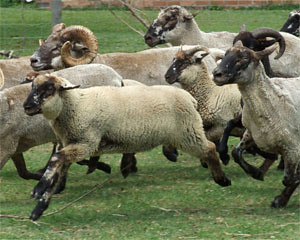
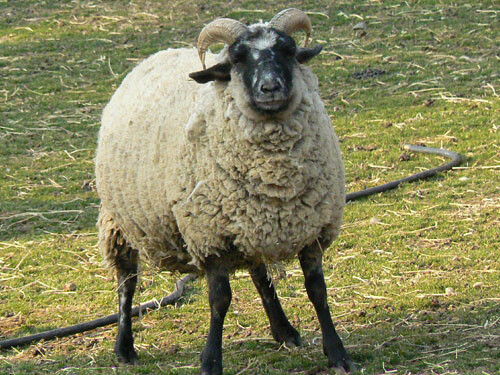
The Hog island sheep sure can stand the very harsh conditions because of their extremely high lanolin content in their fleece.
It is the most water repellent fibre I have ever worked with even with almost all the lanolin removed it has this strange quality of soaking the water up and then spitting it out again almost immediately, which means getting dry after a heavy storm would have been a lot easier than being soaked to the bone for those sheep. I found their fibre extremely nice to work with: it traps the air beautifully, it is slightly crisp but not so much as that of the North Ronaldsay.
The Locks are dense and downy and the staple length is medium to short, like that of a down sheep like Southdown and Hampshire down sheep. Professional mill processing of Hog Island sheep is hardly ever done because it can result in a lot of nepps.
I found spinning the fibres, that the singles “ask” to be spun reasonably fine. It sets the short fibres in the twist. That said, I think an art yarn which asks for core spun fluffiness can also be amazing !
The micron count as with all critical or endangered breeds vary a lot. This lot was around the 22 micron. I think it is perfectly suitable to make socks, shawls , scarves out of. Just like the Hog Island sheep it can withstand quite a lot. It also depends what you “tolerate” close to skin. Everybody is different.
The fibre is not lustrous and I was told that because it has such a matte appearance that when you dye it, you can get a very muted colour. I tried. I dyed with Indigo, Madder, onion skins, mushrooms and walnut amongst others but also some Landscape dyes (the colourway Party Time for example). Reds are harder but with a bit of perseverance I found doing a very slow immersion or steaming and then letting it cool down overnight can result in quite saturated colours.
Most of the Hog Island sheep are white. Only 10% are black. The lambs have cute black spots on their body and their fleece but the sport disappear when they get older. The face and legs of these sheep can be speckled brown, white, and black, or have black faces and legs.
Wool from this breed is of medium weight with fleece yields ranging from one to 4 kilos. The sheep will naturally shed their wool slowly each year, but most owners choose to shear them in order to collect wool and create a more even looking coat on their sheep. The ewes make excellent mothers and most often give birth to twins. Hog Island sheep are fabulous foragers and prefer to browse rather than graze. They stay in very tight flocks and are extremely alert in nature.
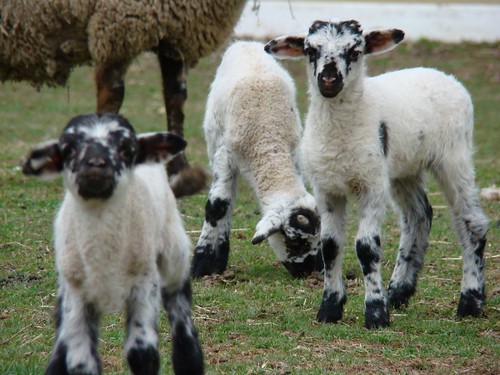
More information can be found here
http://svffoundation.org/animals/hog-island-sheep.html
http://www.hogislandsheep.org/ http://www.livestockconservancy.org/index.php/heritage/internal/hog-island
and if you want to see some Hog island lambs in action here is the link to a cute youtube video :
Better get this show on the road! Have a fun snaffle !!!
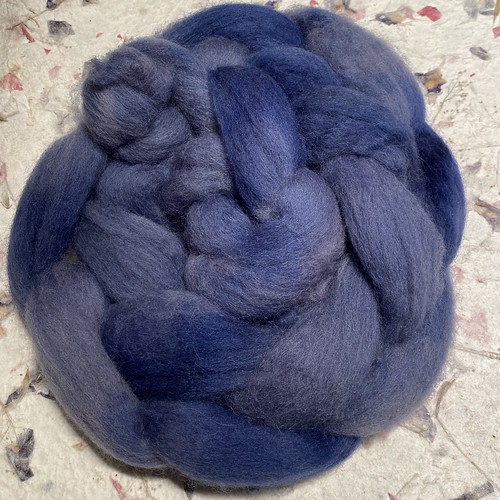
 Indigo Night (dyed with Japanese Indigo). sold
Indigo Night (dyed with Japanese Indigo). sold

 Gothic Velvet Kisses SOLD
Gothic Velvet Kisses SOLD

 Pebble Beach sold
Pebble Beach sold
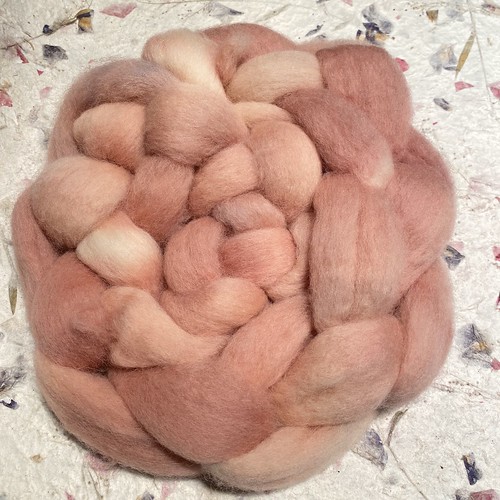
 Rose (Dyed with madder root) SOLD
Rose (Dyed with madder root) SOLD

 Frozen Lakes SOLD
Frozen Lakes SOLD

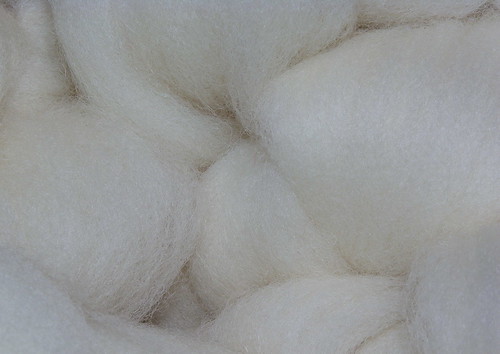 Natural sold
Natural sold

 Wee Witchie SOLD
Wee Witchie SOLD

 Galapagos sold
Galapagos sold

 Gold SOLD
Gold SOLD

 Girl Power SOLD
Girl Power SOLD
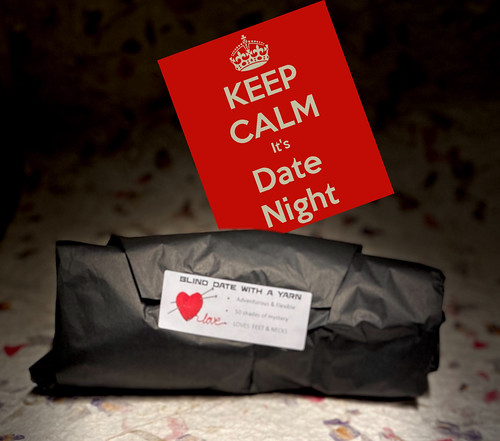
That is a fab price for a bit of an adventure that will bring a spark to your yarn life so to speak !
Just what we all need at this time : 50 shades of mystery …
Every date is already wrapped,
so no specific requests are possible this time.
Remember: it is a blind date !

 Every Blind date is individually packed,
Every Blind date is individually packed,
has a surprise gift inside and
has a sticker with a little introduction
There are only a limited number of blind dates available !
 April 2021 Fibre Club
April 2021 Fibre Club
 April 2021 Club
April 2021 Club
 April 2021 Club
April 2021 Club
 June 2021Club
June 2021Club

 June 2021Club
June 2021Club
Note to all International club members:
All international club parcels are now being shipped with tracking and expedited.
There is an option if you want all three of your clubs to be shipped together to save on shipping cost: Just ask me for a postage quote !
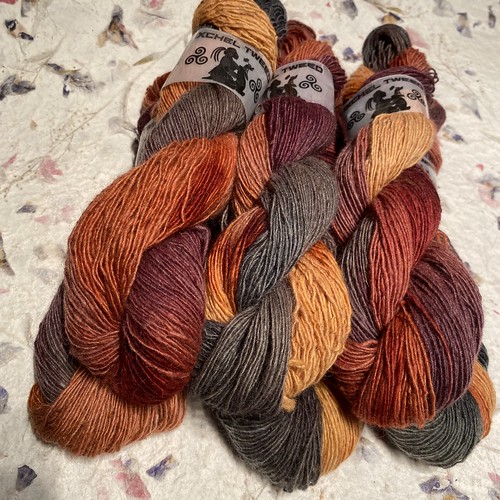
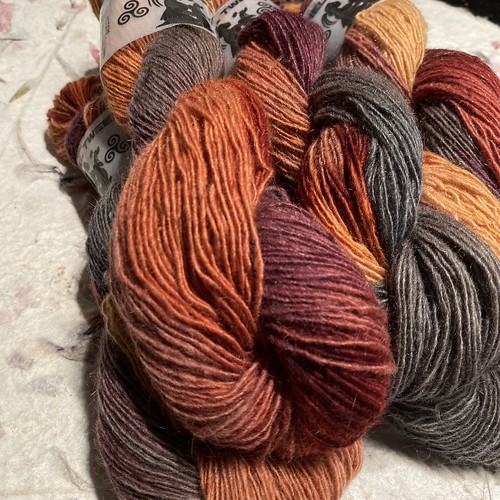
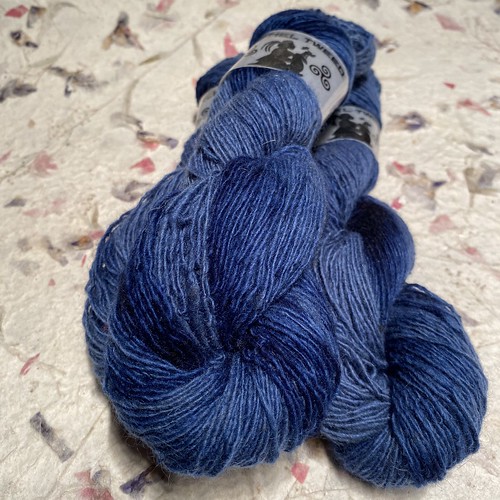






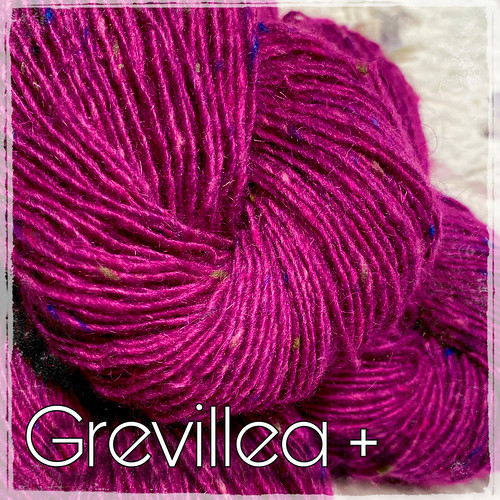

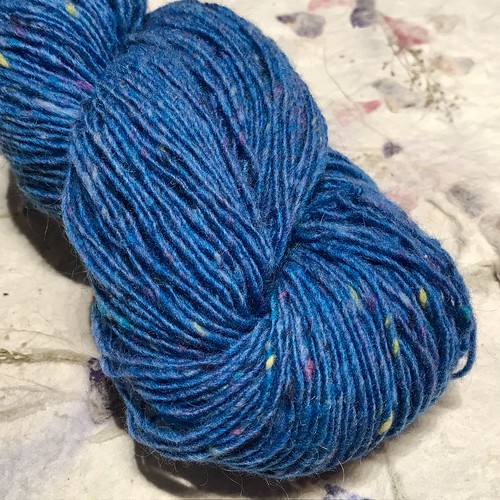
Ofcourse the settlers brought a whole different set of “dresscodes” and way of surviving with them, so, sheep were part of the survival plan.
The settlers that came to the barrier island off the coast of Virginia, Hog Island, brought a British sheep breed with them. I have not been able to find which particular breed or breeds they could have been, but judging by the way the fibre behaves I think it may have been Hampshire Downs or Shropshire or Southdown. Anyway, I digress, I was still in the 1700s… It was in 1672 that a group of 22 colonists and their families went to live on Machipongo (Hog) Island, just a few miles above the entrance to Chesapeake Bay. What became of them is an impenetrable mystery. They disappeared so completely that no descendants are known. Despite their fate, it remained the consensus that living on the island was good. The sea, the inlets and the marshes teemed with fish and fowl. As for flesh, the natural pastures were ideal for livestock, particularly hogs (hence the name Hog Island). There must have been an impressive number of these at one time to cause the romantic-sounding name Machipongo to be dropped in their favour. It wasn’t til the Civil War times that a second colonization began. The sheep ascendants from back in 1672 were still there and were thriving.
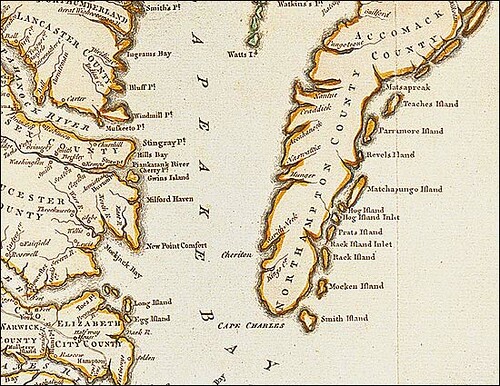 |
| You can see Hog Island still named "Matchapungo island" on this old map here.. 4th barrier island from the top right of the picture |
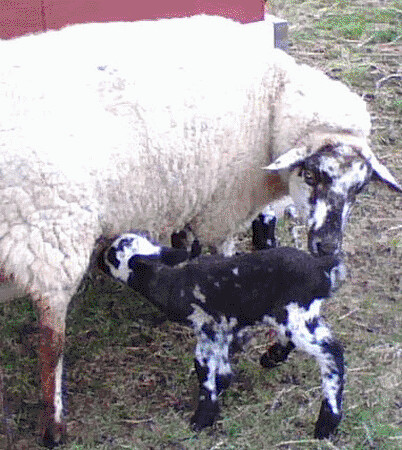 |
| A hog Island sheep with her lamb: The Hog Island Ewes are excellent mothers |
The people lived truly on the fat of the land. Oysters, clams, crabs and fish or a superiority unchallenged in the rest of the United States were staples. Vegetable gardens yielded two crops a year. Aside from a few necessities like clothing and shelter, nothing required cash.
The hardy, self-reliant folk laughed at insurance agents. Their total taxes were a few cents a year paid on their real estate to the Northampton county treasurer. They did not even have to license their automobiles. They made their own roads. They enjoyed such health that a doctor would have starved. Though many of them were laid low by the flu epidemic of 1918, no one died.
Every man kept his money in his home, and in some cases this meant considerable cash. But no one ever reported it missing. There was one store operated by Sam Kelly. Like everything else on Hog Island, this store was different from what you would expect: No one ever was permitted in it. Every morning Mr. Kelly made the rounds taking orders. Every afternoon, after loading up in his forbidden precincts, he delivered. He kept this up until he was over 80. No one ever knew him to buy anything except to sell it. He was the secret topic of conversation: how much money did he have and where was it hidden? After he died in lonely squalor, his quarters were searched. Thousands of dollars were hidden away in nooks and crannies. But it was calculated that the amount should have been much greater. It was decided that he had buried most of it. It was never found….
Slowly but surely the island was being swallowed by the sea. In the 1930s the sea started to move in…so the people moved out.
Whole houses were detached from their moorings and brought to the mainland. The whole community left but some of their heritage 1672 sheep remained. In 1933 a string of hurricanes and “nor’easter” storms washed across the island and discouraged the residents from continuing life in their island community. By 1945 all of the residents of Hog Island had migrated to the Eastern Shore of Virginia and had taken most of their livestock with them. Many sheep remained on Hog Island and continued to thrive as they had for centuries. The annual shearing and notching in the spring was generally the only contact between the owners and their sheep. The sheep roamed freely upon their “floating” pasture foraging for marsh grass and drinking fresh water from small pools that had been dug ankle deep into the sandy soil.
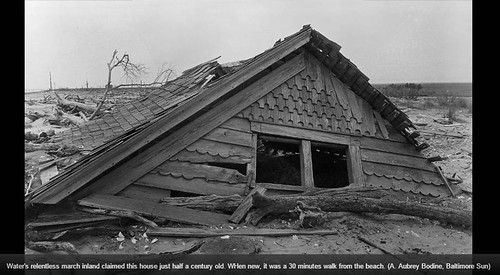 |
| (photo courtesy of the Baltimore Sun, 1957) |
The last sheep were removed from Hog Island in 1974 when the Nature Conservancy purchased the island. But, surprise!!! : Four years later, Virginia Coast Reserve agents found, to their surprise, a thriving flock of sheep on the island. This is a testament to the extreme hardiness of these animals.
The Nature Conservancy removed the last of the sheep in late August 1978, to return them to full domestication. Ten rams and twenty ewes travelled to Virginia Tech for research into the breed’s parasite resistance.
The year-long study indicated that isolation, not resistance, had kept the sheep virtually parasite free on the island.
Following their stay at the University, the remnant flock found a new home at George Washington’s Birthplace National Monument. While private breeders hold some flocks, many Hog Island sheep remain part of the heritage landscapes of living history museums, including Plymouth Plantation, the Museum of American Frontier Culture, Mount Vernon Estate and Gardens, George Mason’s Gunston Hall, George Washington’s Birthplace, and the National Colonial Farm in Williamsburg. The Hog Island sheep look right at home at the Colonial Farm in Williamsburg considering they descend from and resemble historic sheep that existed in the New World during and after the colonial period.


The Hog island sheep sure can stand the very harsh conditions because of their extremely high lanolin content in their fleece.
It is the most water repellent fibre I have ever worked with even with almost all the lanolin removed it has this strange quality of soaking the water up and then spitting it out again almost immediately, which means getting dry after a heavy storm would have been a lot easier than being soaked to the bone for those sheep. I found their fibre extremely nice to work with: it traps the air beautifully, it is slightly crisp but not so much as that of the North Ronaldsay.
The Locks are dense and downy and the staple length is medium to short, like that of a down sheep like Southdown and Hampshire down sheep. Professional mill processing of Hog Island sheep is hardly ever done because it can result in a lot of nepps.
I found spinning the fibres, that the singles “ask” to be spun reasonably fine. It sets the short fibres in the twist. That said, I think an art yarn which asks for core spun fluffiness can also be amazing !
The micron count as with all critical or endangered breeds vary a lot. This lot was around the 22 micron. I think it is perfectly suitable to make socks, shawls , scarves out of. Just like the Hog Island sheep it can withstand quite a lot. It also depends what you “tolerate” close to skin. Everybody is different.
The fibre is not lustrous and I was told that because it has such a matte appearance that when you dye it, you can get a very muted colour. I tried. I dyed with Indigo, Madder, onion skins, mushrooms and walnut amongst others but also some Landscape dyes (the colourway Party Time for example). Reds are harder but with a bit of perseverance I found doing a very slow immersion or steaming and then letting it cool down overnight can result in quite saturated colours.
Most of the Hog Island sheep are white. Only 10% are black. The lambs have cute black spots on their body and their fleece but the sport disappear when they get older. The face and legs of these sheep can be speckled brown, white, and black, or have black faces and legs.
Wool from this breed is of medium weight with fleece yields ranging from one to 4 kilos. The sheep will naturally shed their wool slowly each year, but most owners choose to shear them in order to collect wool and create a more even looking coat on their sheep. The ewes make excellent mothers and most often give birth to twins. Hog Island sheep are fabulous foragers and prefer to browse rather than graze. They stay in very tight flocks and are extremely alert in nature.

More information can be found here
http://svffoundation.org/animals/hog-island-sheep.html
http://www.hogislandsheep.org/ http://www.livestockconservancy.org/index.php/heritage/internal/hog-island
and if you want to see some Hog island lambs in action here is the link to a cute youtube video :
Better get this show on the road! Have a fun snaffle !!!
Warning : There is only a very limited quantity available.
Please don't hesitate to contact me at any time if you have any questions okay? Always happy to enable. All my contact details are to be found at the end of this week’s blog entry. Have fun !!!
Hog Island Sheep Tops
100+ gram tops, hand dyed AU$23
Night Hawks SOLD

 Indigo Night (dyed with Japanese Indigo). sold
Indigo Night (dyed with Japanese Indigo). sold
 Gothic Velvet Kisses SOLD
Gothic Velvet Kisses SOLD
 Pebble Beach sold
Pebble Beach sold
 Rose (Dyed with madder root) SOLD
Rose (Dyed with madder root) SOLD
 Frozen Lakes SOLD
Frozen Lakes SOLD
 Natural sold
Natural sold
 Wee Witchie SOLD
Wee Witchie SOLDGroovy SOLD

 Galapagos sold
Galapagos sold
 Gold SOLD
Gold SOLD
 Girl Power SOLD
Girl Power SOLD
To order: email or message me on facebook, Ravelry or Instagram, quoting the colourway and the quantity you would like, together with your postal address and I will get right back to you with all the payment details.

IxCHeL’s “Blind Date with a Yarn” Show
Choose your type of date by telling me the following:
If you like
Lace weight (+/- 100grams, +/- 1200meters)
Sock weight/fingering weight (100grams , +/- 400m) or
DK/8ply weight (100grams, +/- 200meters)
And
how many blind dates you want to handle !
Special Price for each of your blind dates is AU$25 !!!
Normal retail price is AU$32 -AU$35 !!!!
That is a fab price for a bit of an adventure that will bring a spark to your yarn life so to speak !
Just what we all need at this time : 50 shades of mystery …
Every date is already wrapped,
so no specific requests are possible this time.
Remember: it is a blind date !

 Every Blind date is individually packed,
Every Blind date is individually packed, has a surprise gift inside and
has a sticker with a little introduction
There are only a limited number of blind dates available !
To order: email or message me on facebook or Instagram, quoting the colourway and the quantity you would like, together with your postal address and I will get right back to you with all the payment details.
IxCHeL club sign ups for October, November, December 2021 !!!!! are open !
Here are some photos of the previous clubs.
 April 2021 Fibre Club
April 2021 Fibre Club April 2021 Club
April 2021 Club April 2021 Club
April 2021 Club June 2021Club
June 2021Club
 June 2021Club
June 2021ClubNote to all International club members:
All international club parcels are now being shipped with tracking and expedited.
There is an option if you want all three of your clubs to be shipped together to save on shipping cost: Just ask me for a postage quote !
IxCHeL Fibre Club October, November, December 2021
The subscription is for a period of three months and you will receive one special hand dyed and special blended top/roving per month
All the tops will be hand dyed and will be especially made for the members of IxCHeL Fibre Club ! Price to join the IxCHeL Fibre Club #49 and receive your special hand dyed top :)) for three months (October, November, December 2021) is AU$78 + postage (parcel post or airmail). AND there are good value double and triple serves available !!!
For Australia : single serve $78+$30 postage (parcel post), double serve $150(save $6) +$30m postage or triple serves $225 (save $9!) + $30 postage
For New Zealand : single serve $78+$45 postage (parcel post) double serve $150(save $6) +$45 postage
For New Zealand : single serve $78+$45 postage (parcel post) double serve $150(save $6) +$45 postage
For USA + Canada: single serve AU$78+AU$60 (Airmail) double serve AU$150+AU$60; triple serve $225 (save $9) + AU$60postage
For UK,Europe, rest of the world: Single serve AU$78+AU$78 (airmail) Double serve AU$150+AU$78; triple serve $225 (save $9) + AU$78postage
For Asia: Single serve AU$78+AU$57 (airmail) Double serve AU$150+AU$57; triple serves $225 (save $9) + AU$57postage
If you want to receive a fibre surprise every month then join the IXCHEL FIBRE CLUB #49 now. Numbers are strictly limited ! Payment via direct deposit or credit card or paypal. Just PM or email me your details.
The IxCHeL Yarn Clubs October, November, December 2021
Every month for three months (October, November, December 2021) you will receive: enough hand dyed luscious yummy yarn to make a pair of socks or a lush shawl or scarf of course! (the hand dyed yarn will be exclusive for the Ixchelbunny SOCK-IT-TO-ME Yarn CLUB and will range from a sockweight yarn (a 4ply/fingering weight yarn); Every month a sock or scarf pattern, tips and instructions ! Now is that GOOD or is that GOOD ??!
I will even offer a double serve for those of you who like their socks or scarves extra long !
For Australia : single serve $96+$30 postage (parcel post) double serve $177( save $15!!) +$30 postage
For New Zealand : single serve $96+$45 postage (parcel post) double serve $177( save $15!!) +$45 postage
For USA + Canada: single serve AU$96+AU$60 (Airmail) double serve $177 (Save $15!!) +AU$60
For New Zealand : single serve $96+$45 postage (parcel post) double serve $177( save $15!!) +$45 postage
For USA + Canada: single serve AU$96+AU$60 (Airmail) double serve $177 (Save $15!!) +AU$60
For UK,Europe, rest of the world: Single serve AU$96+AU$78 (airmail) Double serve $177 (Save $15!!) +AU$78
For Asia: Single serve AU$96+AU$57 (airmail) Double serve $177 (= Save $15!!!) +AU$57
Numbers are strictly limited !
Payment via direct deposit or credit card or paypal . Just PM or email me your details
By the way: you don’t HAVE to knit socks if you don’t want to.. the hand dyed yarn is amazingly nice for scarves, cowls, beanies and even tops ! Anything goes Payment via direct deposit or credit card or paypal. Just PM or email me your details
IxCHeL Funky Bunny Batt Clubs October, November, December 2021
Here are all the details. Just pm me when you have any questions or want to be part of the funky bunny batt club Movement ;-) Welcome to the blingy dark side ;-D
The subscription is for a period of three months and you will receive one special hand dyed funky bunny batt per month to the value of AU$40 or more .
The batts will range in weight from 140grams to 170grams with luxury fibres like camel , angora, cashmere, silk, yak, llama even wallaby and bison, and rare breeds !!!! All the batts will be hand dyed and will be especially made for the members of IxCHeL funky bunny Club ! Every month you will receive a HUGE luxury funky bunny batt !
Sign up now and you will receive an IxCHeL Hand dyed , super luxurious funky bunny batt for October, November, December 2021
Price to join the IxCHeL Funky bunny for three months is :
For Australia : $114+$30 postage (parcel post)
For New Zealand : single serve $114+$45 postage (parcel post)
For USA + Canada: AU$114+AU$60 (Airmail)
For New Zealand : single serve $114+$45 postage (parcel post)
For USA + Canada: AU$114+AU$60 (Airmail)
For UK,Europe, rest of the world: AU$114+AU$78 (airmail)
For Asia: AU$114+AU$57 (airmail)
If you want to receive a fibre surprise every month then join the IXCHEL FUNKY BUNNY BATT CLUB now.
Numbers are strictly limited !
Payment via direct deposit or credit card or paypal. Just PM or email me your details.
To become a member just email me on ixchelbunnyart at gmail dot com or message me on facebook or Instagram. More on how to order the clubs and anything from this update later in the blog in the section “how to order”
To order: email or message me on facebook or Instagram, quoting the colourway and the quantity you would like, together with your postal address and I will get right back to you with all the payment details.
IxCHeL Tweed Yarn
Hand dyed
Super soft lambs wool 70% and Kid Mohair 30%
Spun singles, fingering or sock weight yarn
+/- 200meters/218yards
50grams 1.76oz
AU$18


Botanical dyes
(dyed with Eucalypt, Madder root, Walnut, Elderberry, Indigo,Acorn)


Indigo


Jewels
NEW colours !!!
IxCHeL Tweed Yarn
Super soft lambs wool 70% and Kid Mohair 30%
Spun singles, fingering or sock weight yarn
+/- 200meters/218yards
50grams 1.76oz
AU$16


Nephrite Jade
(A beautiful deep sage green colour with fun blue, lime and salmon speckles)


Grevillea + new !
A vibrant raspberry pink tweed with deep purple, lime and soft pink speckles)
To order: email or message me on facebook, Ravelry or Instagram, quoting the colourway and the quantity you would like, together with your postal address and I will get right back to you with all the payment details.
IxCHeL Tweed fingering weight yarn
Super soft lambs wool 70% and Kid Mohair 30%
Spun singles, fingering or sock weight yarn
+/- 200meters/218yards
50grams 1.76oz
AU$16


Great Barrier Reef




Leafy Seadragon




Flying Fox
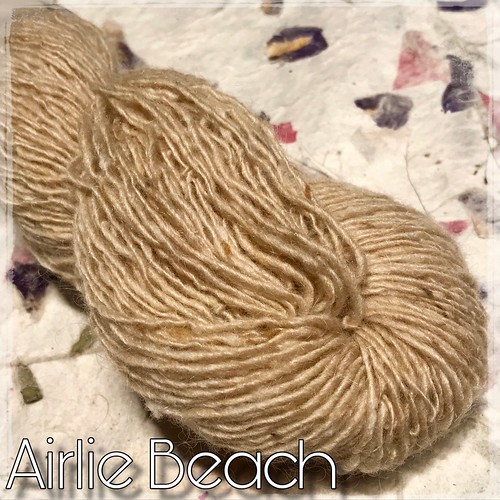



Airlie Beach




Sea Mist





Amethyst


 Kata Tjuta BACK IN STOCK !!!
Kata Tjuta BACK IN STOCK !!!
(an intense pure red that goes well with the Kookaburra and the Wattle and the Amethyst colourway and soooooo many others)

 Kookaburra
Kookaburra
(a beautiful silver grey with ochre accents that complement the dingo colourway)

 Dingo
Dingo
( A beautiful warm honey ochre with pops of royal bluebell, kingfisher and kangaroo paw)

 Dusky Grevillea
Dusky Grevillea
(a gorgeous raspberry base with pops of royal bluebell, flowering gum, grey and daintree)


 Fern Forest
Fern Forest
( a deep forest green with accents of bright red, dusky purple and daintree) )

 Jacarandah
Jacarandah
( a fabulous deep purple with accents of royal bluebell, daintree, grevillea and kingfisher )

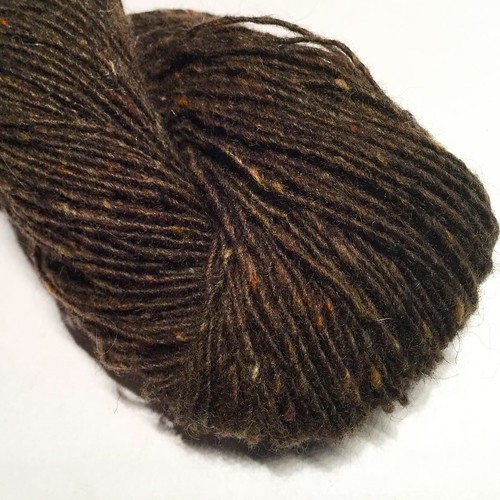 Wombat
Wombat
( a fabulous deep walnut brown with accents of dingo and kookaburra)

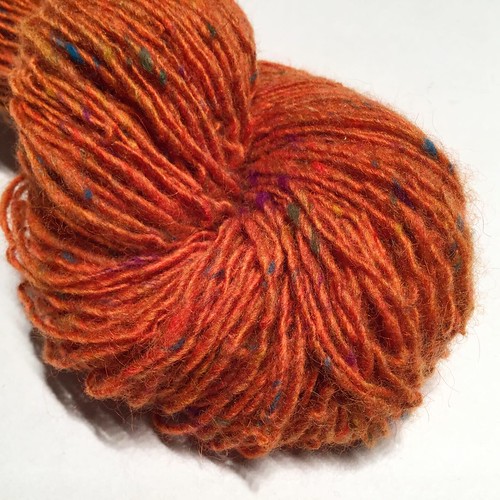 Kangaroo Paw
Kangaroo Paw
( a fabulous warm orange with accents of fern forest, royal bluebell and grevillea and dingo )


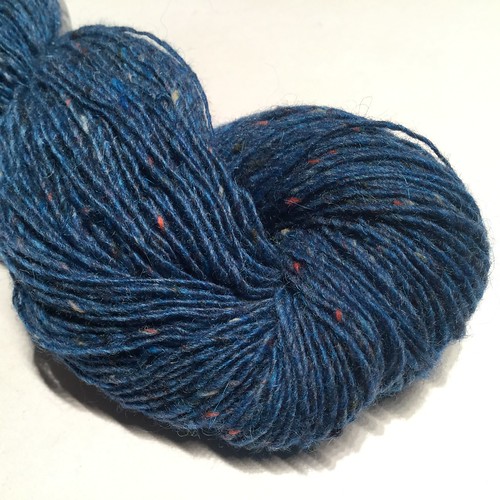 Royal Bluebell
Royal Bluebell
( a deep blue with accents of flowering gum, kookaburra and fern forest )

 Wallaby
Wallaby
( a warm light brown with accents of soft blue and kookaburra)

 Daintree ( a soft green with accents of fern forest and dingo)
Daintree ( a soft green with accents of fern forest and dingo)
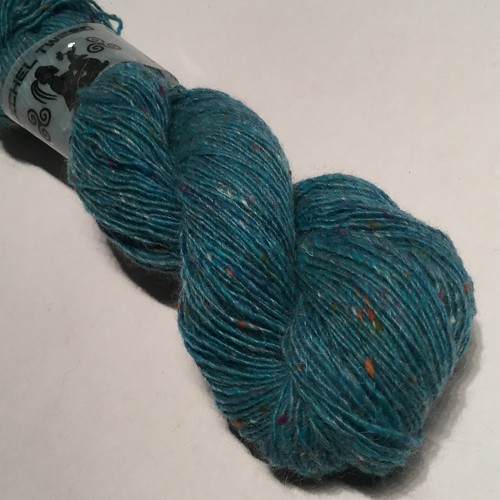
 Kingfisher
Kingfisher
( a fabulous Turquoise blue with accents of fern forest, kangaroo paw, Jacaranda and Grevillea)

Want to dye your own with easy to use acid dyes? I have been selling these Landscape dyes at my workshops and shows for a long time : They are extremely easy to use and come in great shades.

Wattle
(A beautiful sunshine yellow that goes so well with the kookaburra the silver grey)
(A beautiful sunshine yellow that goes so well with the kookaburra the silver grey)

 Kata Tjuta BACK IN STOCK !!!
Kata Tjuta BACK IN STOCK !!!(an intense pure red that goes well with the Kookaburra and the Wattle and the Amethyst colourway and soooooo many others)

 Kookaburra
Kookaburra(a beautiful silver grey with ochre accents that complement the dingo colourway)

 Dingo
Dingo( A beautiful warm honey ochre with pops of royal bluebell, kingfisher and kangaroo paw)

 Dusky Grevillea
Dusky Grevillea(a gorgeous raspberry base with pops of royal bluebell, flowering gum, grey and daintree)

Flowering Gum
( a gorgeous medieval warm red with bright red, kookaburra and fern forest accents)
( a gorgeous medieval warm red with bright red, kookaburra and fern forest accents)

 Fern Forest
Fern Forest ( a deep forest green with accents of bright red, dusky purple and daintree) )

 Jacarandah
Jacarandah ( a fabulous deep purple with accents of royal bluebell, daintree, grevillea and kingfisher )

 Wombat
Wombat( a fabulous deep walnut brown with accents of dingo and kookaburra)

 Kangaroo Paw
Kangaroo Paw ( a fabulous warm orange with accents of fern forest, royal bluebell and grevillea and dingo )

isn’t it gorgeous how the Kangaroo paw knits up?! )

 Royal Bluebell
Royal Bluebell ( a deep blue with accents of flowering gum, kookaburra and fern forest )

 Wallaby
Wallaby( a warm light brown with accents of soft blue and kookaburra)

 Daintree ( a soft green with accents of fern forest and dingo)
Daintree ( a soft green with accents of fern forest and dingo)
 Kingfisher
Kingfisher ( a fabulous Turquoise blue with accents of fern forest, kangaroo paw, Jacaranda and Grevillea)
Landscape dyes

100g tubs AU$12
250 g tubs AU$27
250 g tubs AU$27
Just contact me with the name of the colour you are after and I will get right back to you.
All my contact details are here:
Please don't hesitate to contact me at any time if you have any questions okay? Always happy to enable. All my contact details are to be found at the end of this week’s blog entry.
Have a fun weekend !!!
Have a fun weekend !!!
How To Order:
1. You can email me on ixchelbunnyart at gmail dot com or ixchelbunny at yahoo dot com dot au
2. Message me on facebook or
3. Message me on www.ravelry.com where I am ixchelbunny.
4. message me on Instagram where I am @ixchelbunny
I will email you right back with all your order details and payment methods.
Any questions? Any custom orders for yarn or dyeing fibre? : Please don’t hesitate to ask! Always happy to enable.
2. Message me on facebook or
3. Message me on www.ravelry.com where I am ixchelbunny.
4. message me on Instagram where I am @ixchelbunny
I will email you right back with all your order details and payment methods.
Any questions? Any custom orders for yarn or dyeing fibre? : Please don’t hesitate to ask! Always happy to enable.
Keep your eyes out for any news on the
ixchelbunny Instagram feed and the IxCHeL facebook page!!
RABBIT ON !
((hugs))
Charly










No comments:
Post a Comment